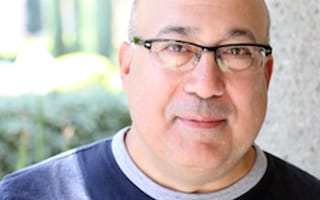 Mark Castrovinci knows technology.
Mark Castrovinci knows technology.
Over the past 15 years, he’s held leadership positions at technology companies all over the world, helping build cutting-edge platforms and nurture successful teams.
Today, he’s commander-in-chief for all of Legacy.com’s tech development and innovation. The CTO helms Legacy’s online platform for memorials and obituaries. The Evanston-based company plays host to 30 million-plus visitors a month, making it one of the largest media companies in the world. We caught up with up him to get his thoughts on how technology is fueling Legacy’s success.
What technologies power your business?
We have several different platforms that support each of our different brands. We are currently in the process of building a new platform so we can support those businesses from a single, more efficient platform.
What technologies are playing the biggest roles in Legacy this year?
Everything is new in this new platform. We are moving to the cloud, using Docker to simplify environment management, using Node/React/JavaScript on the server for our web pages, open source database platforms such as PostgreSQL and Talend for managing our data and Drupal for a new CMS.
How will Chicagoland's tech community specifically continue to strengthen as we head toward 2016?
There will be a continued move toward open source and cloud-based solutions. Costs will drive this and talent will follow. Engineers gravitate toward exciting technologies and businesses will find that move will intersect with the direction they should be moving their systems. This market model of supply(engineers) and demand(businesses) will create competition for talent that will keep engineers pushing themselves to be more valuable and companies to follow technologies that attract and leverage those people to improve their ability to innovate and stay competitive.
Chicago is known for having a large talent pool of thirsty, young workers. What are the top characteristics you look for in a potential hire?
Strong interest in their own careers and pursuing technology with a passion. It is also very important that people work well together, so I appreciate people who have solid opinions born out of their passion for technology but are also strong communicators and collaborators. It’s not enough to be smart and armed with great knowledge. You also have to play well with others because without a strong team dynamic accomplishments will suffer.
How would your team describe working with you?
Hopefully they see me as passionate about what we’re trying to accomplish, interested in doing what is best for Legacy.com and fostering a community across tech and product that results in building great things.
How do you go about improving and innovating Legacy using technology?
That’s a pretty broad question. It’s not just a Legacy thing — it’s what you hope every CTO comes in and does. It really starts with getting an understanding of where the company is at, what they’re trying to accomplish, and how well-positioned they are to meet those goals. It isn’t always just technology. I tend to look at four different buckets when a company needs improvement.
Architecture: I take a look at their overall architecture and see how well-positioned they are to innovate and extend what they have. A lot of times the architectures are older and brittle. They’re hard to add things to. It might just be a matter of breaking things apart a bit or throwing certain things away and replacing it. It’s a matter of what they are trying to accomplish and how up to task the existing systems are.
Processes: How are they operating? What are their software development life cycles like? What are the handoffs like between different groups? How well do they respond to outages? Are they capturing requirements properly? How well are they implementing them? How are they testing them?
Organization: Is the organization set up for success? Does it need changes?
Culture: Who’s getting along with who? What’s working; what isn’t? Are there ways I can improve upon that? Are there communication channels that can be better? Are there disconnects between different groups that can be improved by helping people understand that we’re all in this together?
What emerging technologies are you excited about?
I’m very pleased with where we are in terms of building web pages. If you look at our most recent platform release, you’ll see that our pages are lightning fast and extremely SEO friendly. They’re built on our new platform, and we will build everything on that moving forward.
The other thing is that working with the cloud is exciting, and using tools like Docker to create reusable deployment modules is very exciting, too. If you go back to the old days where you had to provision hardware, it could take weeks — and lots of capital and approvals. Working in a cloud environment is really wonderful when you’re talking about speed to market and testing your footprint as needed. It really helps you get things shipped quickly.
If you take a step back and look at how tech has evolved over the course of your career, what has it been like to be apart of that evolution?
Learning how to build distributed systems over time — systems that aren’t just one monolithic application, but are really a collection of systems that interoperate —and collecting information about them so you can measure and react to them has been very exciting to see evolve. It’s been nice to see certain things that just weren’t there early on become commonly available today. Can you imagine everybody trying to figure out how to manage big data sets? Google figured it out, and that’s been a wonderful evolution. There have been some great ideas to come along, and a lot of those ideas have worked their way into tools that are available to every company that is willing to embrace it.






.png)